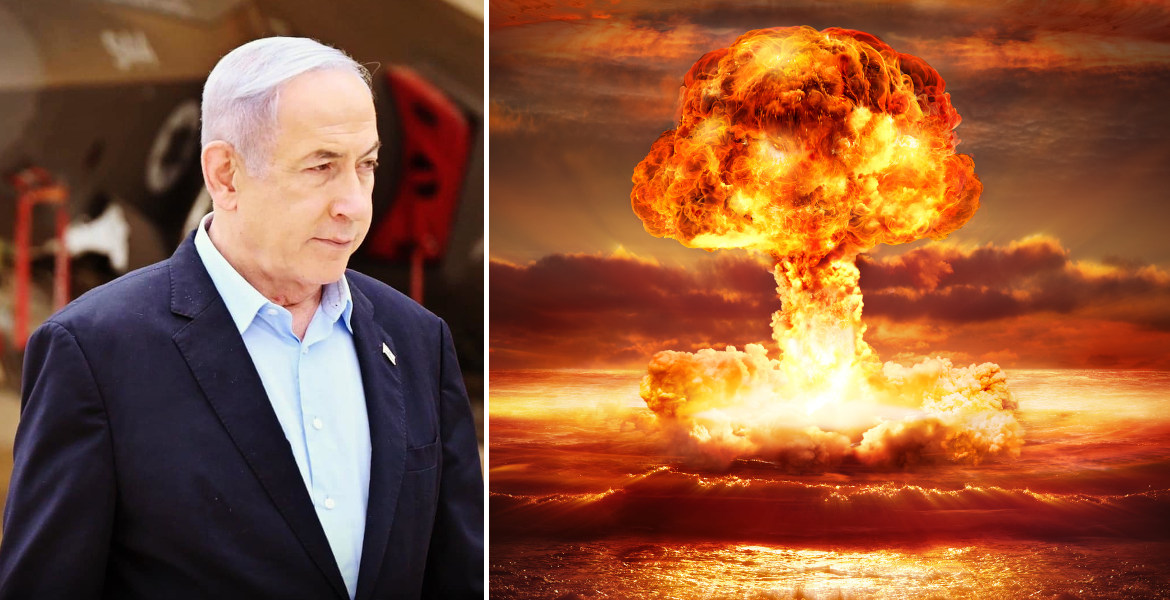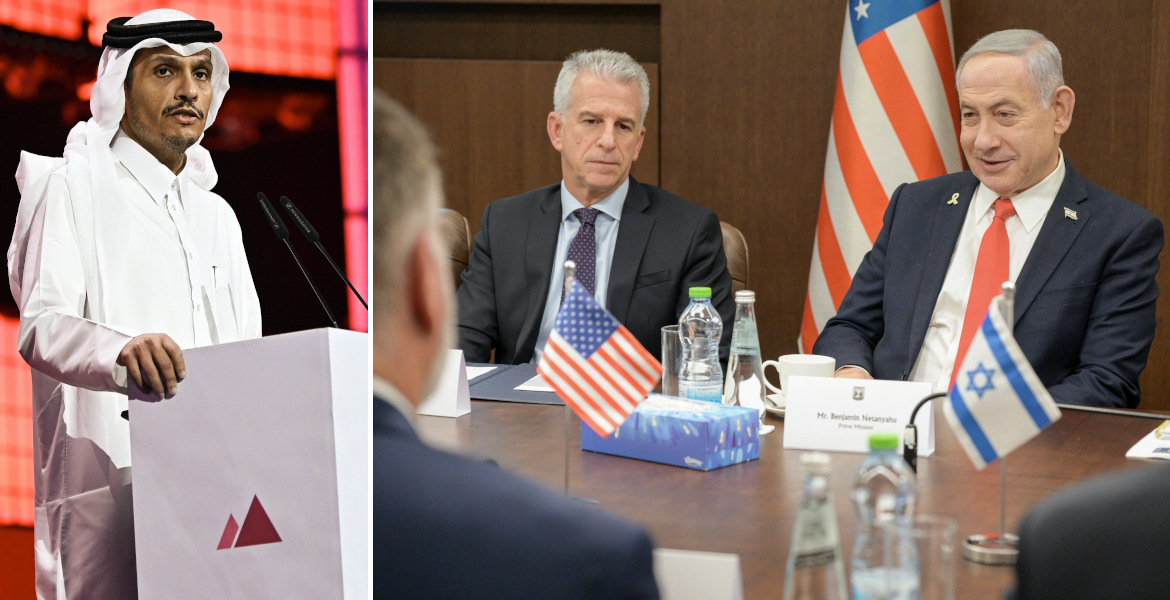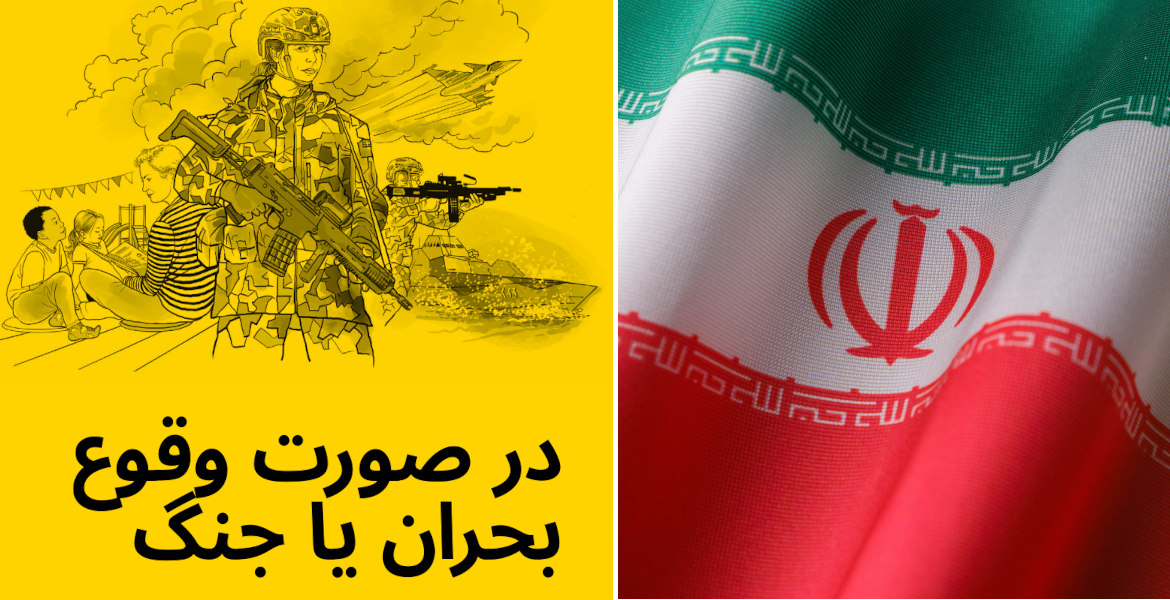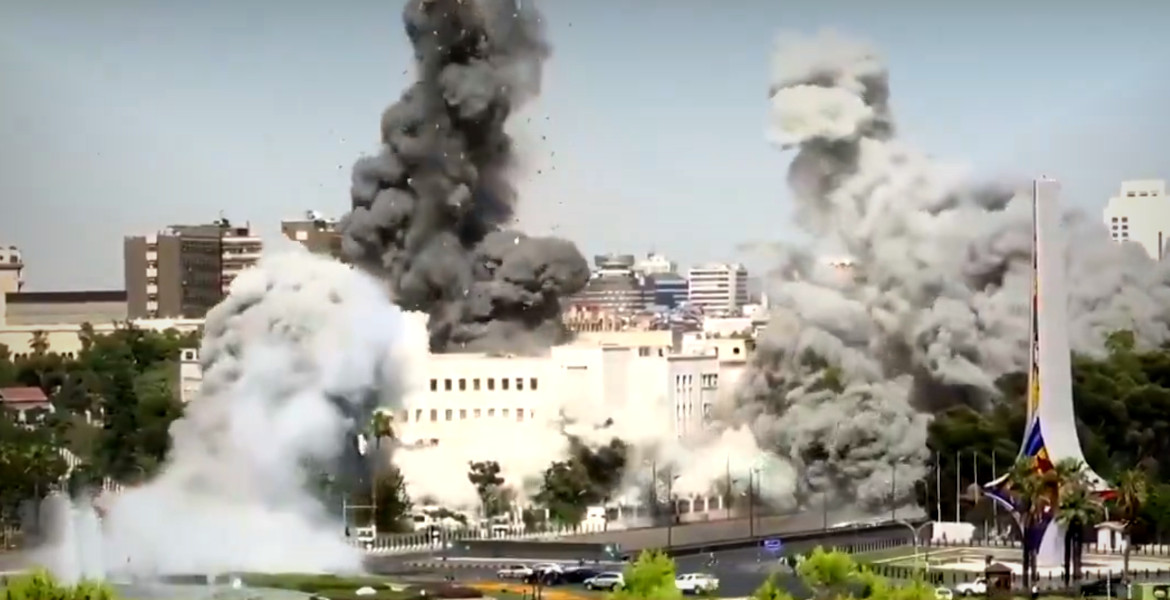After the G7 summit reaffirmed that Iran must never acquire nuclear weapons and that Israel has the right to defend itself, I once again express criticism of the double standards being applied and question why Israel’s nuclear capabilities do not provoke the same kind of mania. I'm reading an analysis that sheds light on this complex situation.
Although it is a fact accepted by experts around the world that Israel has had nuclear bombs since shortly before the Six-Day War in 1967, Israel still maintains a facade of deliberate ambiguity regarding its nuclear capabilities.
According to recent estimates by the independent Stockholm International Peace Research Institute, which has been monitoring the world's nuclear weapons and the states that possess them since 1966, Israel appears to have at least 90 nuclear warheads that are believed to be capable of being launched anywhere within a maximum radius of 4,500 km with their F-15, F-16I and F-35I “Adir” aircraft, their 50 land-based Jericho II and III missiles, and approximately 20 Popeye Turbo cruise missiles launched from submarines.
The relevant question that arises is why the international community does not question Israel's objectives, given that Iran has signed the international nuclear non-proliferation treaty, which Israel has refused to do.
There have been international efforts to bring all Israeli nuclear facilities under the protection of the International Atomic Energy Agency, but Israel refuses to sign an agreement to join the Nuclear Non-Proliferation Treaty as a non-nuclear weapon state.
Another fact that is not disputed is that Israel has attacked Iran with the stated aim of crippling its nuclear weapons programme, which is supported by large parts of the international community, but at the same time the International Atomic Energy Agency has been unable to establish that this is not about energy. Fundamentally, Iran has the right to develop nuclear energy for peaceful purposes, but not to develop nuclear weapons, and so far there is no concrete evidence to support the allegations circulating in the media.
Another unexplored question is why Israel is allowed to have nuclear weapons without having to commit to any agreements, while Iran, if it wanted to, is not allowed to possess nuclear weapons at all.
Another interesting aspect is that Israel has been in violation of UN Resolution 487 since 1981. This originated in an attack on a nuclear research facility in Iraq carried out by Israel on June 7, 1981, which was condemned by the UN Security Council as a "clear violation of the UN Charter and the norms of international conduct". According to the Security Council, Iraq had been a party to the Non-Proliferation Treaty since it came into force in 1970.
The resolution, which is still in force, called on Israel to "place its nuclear facilities under the protection of the International Atomic Energy Agency", but as already mentioned, Israel has never complied with Resolution 487.
Israel has no nuclear power plants, but experts agree that there is a huge nuclear facility. The Shimon Peres Negev Nuclear Research Center was built in the late 1950s/early 1960s and is said to have received French assistance and was named after the former Israeli prime minister after his death in 2016. The facility is a heavily guarded complex in the Negev desert, less than 70 km from the border with Egypt.
Iran has ballistic missiles that can reach the nuclear research center about 1,500 km from Tehran, so why would Tehran attack Israeli cities in retaliation for Israel's attempts to destroy Iran's nuclear industry when they could instead attack Israel's nuclear facility?
The answer probably lies in the "Samson Option", a protocol for mutual destruction whose existence has never been acknowledged by Israel, but never denied either. Pulitzer Prize-winning journalist Seymour Hersh, who also investigated the Nord Stream attack, was the first to report on the Samson Option, which concerns Israel's deterrence strategy of massive retaliation with nuclear weapons as a “last resort” against a country whose military has invaded and/or destroyed large parts of Israel. But it will not only be its enemies that are attacked, but several of the world's major cities under the motto "we fall, we all fall".
Israel has twice come close to using its nuclear weapons. In 2017, it was claimed that Israel had been on the verge of launching a “demonstration” nuclear explosion shortly before the 1967 Arab-Israeli war in order to scare its enemies.
The plan was revealed in interviews with retired General Itzhak Yaakov, conducted by Avner Cohen, an Israeli-American historian and leading researcher on Israel's nuclear history, which were published only after Yaakov's death.
In 2003, Cohen revealed that during the 1973 Yom Kippur War, when it once again appeared that Israeli forces were about to be overrun, then-Prime Minister Golda Meir had approved the use of nuclear bombs and missiles as a last resort. This doomsday plan, codenamed Samson, was named after the Israelite strongman who, captured by the Philistines, tore down the pillars of their temple and destroyed himself along with his enemies.
Mordechai Vanunu, an Israeli nuclear engineer and peace activist, revealed Israel's nuclear secrets back in 1986. Mordechai was lured to Rome, where he was kidnapped by Mossad agents and taken back to Israel on an Israeli navy ship, where he was charged with treason. He was sentenced to 18 years in prison and spent much of his time in solitary confinement. In April 2004, he was released but remains subject to a series of strictly enforced restrictions that prevent him from leaving Israel and speaking to foreigners.
Ahron Bregman, senior lecturer at the Department of War Studies at King's College London's Institute of Middle East Studies, who served in the Israeli army for six years in the 1980s, has said that everyone believes Israel has nuclear weapons and that the fact that Israel found it necessary to arrest Vanunu and put him in prison, and continues to impose strict restrictions on him, only proves this.
If the Samson option is true, it explains much of Israel's influence and the passive attitude of the international community towards Israel. Israel's ability to get away with carte blanche, no matter what it does, is based on a kind of blackmail where no one dares to oppose it for fear of the "nuclear card". The few countries that have missiles capable of shooting down Israel's missiles today are probably Russia, China, and North Korea, as their missiles are faster.
It therefore remains to be seen how this will end, but given that Trump has already given Israel his full support, I find it difficult to see how the outcome could be any different this time. And while those in power make their moves, more people will die on both sides, but the winner laughing all the way to the bank will be the war industry, which, as usual, is profiting from the ongoing chaos.





